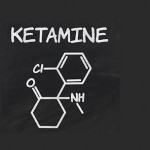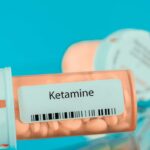
Kirsten Lawson summarises a new ‘state of the art review’ in the BMJ which focuses on novel and emerging pharmacotherapy and neuromodulation for people with ‘treatment resistant depression’.
[read the full story...]
Kirsten Lawson summarises a new ‘state of the art review’ in the BMJ which focuses on novel and emerging pharmacotherapy and neuromodulation for people with ‘treatment resistant depression’.
[read the full story...]
In her debut blog, Gabrielle Williams reviews a US study on the safety and effectiveness of ketamine-assisted therapy (a digital intervention combining psychotherapy, journaling and ketamine) for moderate to severe anxiety and depression.
[read the full story...]
Anya Borissova reviews a French trial that claims to be evidence that “ketamine is rapid, safe in the short term, and has persistent benefits for acute care in suicidal patients”.
[read the full story...]
Rosalind McAlpine and Karel Kieslich summarise a recent systematic review which focuses on the rapid anti-suicidal ideation effect of ketamine.
[read the full story...]
Anya Borissova summarises a recent randomised placebo-controlled trial that evaluated ketamine metabolites, clinical response, and gamma power for major depression.
[read the full story...]
In her debut blog, Harmony Jiang reviews a recent qualitative study exploring patients’ experience and response to ketamine treatment for depression.
[read the full story...]
Jodi Rintelman writes her debut elf blog on the first randomised controlled trial on the efficacy and safety of intranasal esketamine as an adjunctive treatment to antidepressants for treatment-resistant depression.
[read the full story...]
Helge Hasselmann summarises a new systematic review and meta-analysis, which confirms the antidepressant effects of ketamine.
[read the full story...]
Meg Fluharty summarises a recent report from the Royal College of Psychiatrists and explores why novel psychoactive substances and club drugs need a different response from UK treatment providers.
[read the full story...]Helge Hasselmann reviews a new systematic review of ketamine for depression, which highlights the need for an RCT to provide reliable data on the safety, tolerability and best route of administration.
[read the full story...]